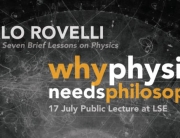Mike Otsuka (LSE): “Reciprocity versus Redistribution: The Case of Collective Pensions”
Pensions involve transfers from those who are young, healthy, able-bodied, and productive to those who are elderly, infirm, and out of work. Are these justified as redistributive transfers between distinct individuals – from those who are lucky to others who are unlucky – in order to eliminate brute luck unfairness? Or are they justified on grounds of reciprocity involving cooperation between persons which is to the ex ante mutual advantage of each? In this latter case, the grounds would be conceived as involving intrapersonal rather than interpersonal transfers: transfers from one’s more fortunate to one’s less fortunate self, where these selves might be understood either temporally or modally. I explore the extent to which pensions can be justified on such grounds of reciprocity as opposed to redistribution. Among other things, I explore Ken Binmore’s claim that ‘pay as you go’ pensions in which each generation pays the pensions of the previous generation can be justified as in mutually advantageous Nash equilibrium.



























Connect with us
Facebook
Twitter
Youtube
Flickr